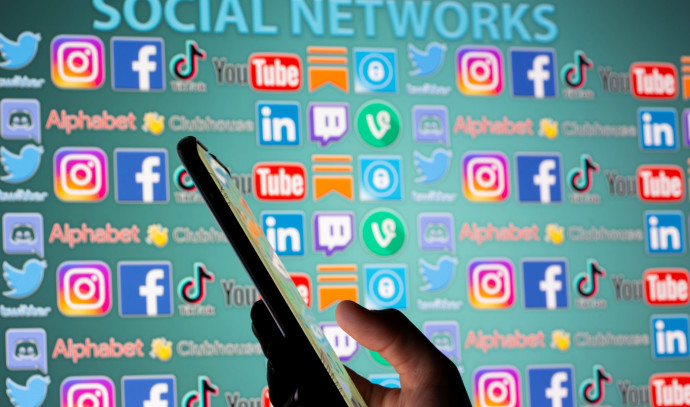US Surgeon-General Dr. Vivek Murthy urged on Wednesday in an official 21-page advisory that action be taken to ensure social media environments are healthy and safe for young people.
While social media may offer some benefits, he said, “There are ample indicators that social media can also pose a risk of harm to the mental health and well-being of children and adolescents. Social media use by young people is nearly universal, with up to 95% of young people ages 13 to 17 reporting using a social media platform and more than a third saying they use social media almost constantly.”
“There are ample indicators that social media can also pose a risk of harm to the mental health and well-being of children and adolescents. Social media use by young people is nearly universal, with up to 95% of young people ages 13 to 17 reporting using a social media platform and more than a third saying they use social media almost constantly.”
Vivek Murthy
The 45-year-old physician said that “with adolescence and childhood representing a critical stage in brain development that can make young people more vulnerable to harms from social media,” urgent efforts must be taken by policymakers, technology companies, researchers, families and young people alike to gain a better understanding of the full impact of social media use, maximize the benefits and minimize the harms of social media platforms, and create safer, healthier online environments to protect children.”
“The most common question parents ask me is, ‘is social media safe for my kids.’ The answer is that we don’t have enough evidence to say it’s safe, and in fact, there is growing evidence that social media use is associated with harm to young people’s mental health,” said Murthy.
“Children are exposed to harmful content on social media, ranging from violent and sexual content, to bullying and harassment – and for too many children, social media use is compromising their sleep and valuable in-person time with family and friends. We are in the middle of a national youth mental health crisis, and I am concerned that social media is an important driver of that crisis – one that we must urgently address.”
How much time do Israeli youth spend looking at screens every day
According to a study connected last year by the Israel Internet Association, the majority of children and teens (53%) spend between two and six hours per day in front of screens. About one-quarter of them spend between six to eight hours in front of screens and 11% devote more than eight hours a day to screen time.
Two-thirds of the Arab youths admitted to spending between four and eight hours per day in front of screens, compared with 54% of youth in the secular Jewish population, 51% of the traditional Jewish population and 41% of the national-religious Jews. In comparison, 18% of the youth in the secular Jewish population reported more than eight hours of daily screen time, compared with 15% of the traditional Jewish population, 12% of the Arab population and 5.5% of the national-religious Jewish population.
The youth in the greater Tel Aviv area and southern Israel provided more reports of heavy usage exceeding eight hours of screen time per day and the Sharon coastal plain, 9.7% in Judea and Samaria, 8% in the Haifa region and northern Israel and only 2% in the Jerusalem area.
The positives and negatives of social media
Usage of social media can become harmful depending on the amount of time children spend on the platforms, the type of content they consume or are otherwise exposed to, and the degree to which it disrupts activities that are essential for health like sleep and physical activity. Importantly, different children are affected by social media in different ways, including based on cultural, historical, and socio-economic factors. Among the benefits, American adolescents report that social media helps them feel more accepted (58%), that they have people who can support them through tough times (67%), a place to show their creative side (71%), and are more connected to what’s going on in their friends’ lives (80%).
But use can be excessive and problematic for some children, warned Murthy. “Recent research shows that adolescents who spend more than three hours per day on social media face double the risk of experiencing poor mental health outcomes, such as symptoms of depression and anxiety; yet one 2021 survey of teenagers found that, on average, they spend 3.5 hours a day on social media, which can also perpetuate body dissatisfaction, disordered eating behaviors, social comparison and low self-esteem, especially among adolescent girls. One-third or more of girls aged 11-15 say they feel ‘addicted’ to certain social media platforms and over half of teens admit that it would be hard to give up social media.”
The surgeon-general urged policymakers to take steps to strengthen safety standards and limit access in ways that make social media safer for children of all ages, better protect children’s privacy, support digital and media literacy, and fund additional research; technology companies to better assess the impact of their products on children, share data with independent researchers to increase our collective understanding of the impacts and make design and development decisions that prioritize safety and health; parents to establish tech-free zones that better foster in-person relationships, teach kids about responsible online behavior and model that behavior and report problematic content and activity; and researchers to prioritize social media and youth mental health research to establish standards and evaluation of best practices.



